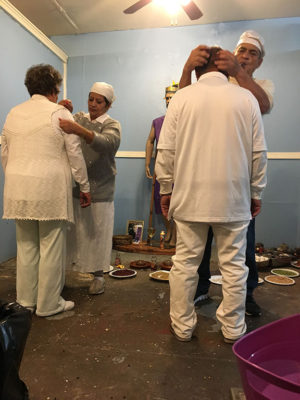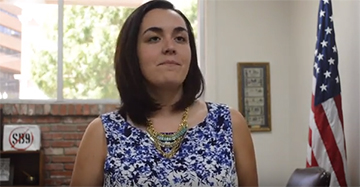How I learned to respect my family’s belief in Santeria
|
As an 8-year-old child growing up in El Paso, I would frequently attend colorful family backyard barbeques that featured a small room lined with a row of chairs facing a table laid out with tiny cups and unusual statues of saints and Afro-Cuban dieties. In addition to enjoying the traditional barbeque food like hamburgers and hotdogs, my grandparents also served spicy black beans and rice, a dish they had learned to make when they visited Cuba some years ago. Confused by the strange rituals I witnessed at these every-other-week family cookouts, which were far different from what I experienced at the Catholic church I attended with my parents on Sundays, I tended to keep my distance from the adults and instead spent my time running around the yard playing with my cousins. I didn’t pay much attention to why, at the family reunions, my grandparents and other relatives chanted in an unfamiliar language and dressed all in white. As a young Catholic, Mexican-American boy growing up in the U.S.-Mexico borderlands, all I understood was that the unfamiliar rituals were strange and foreign.


